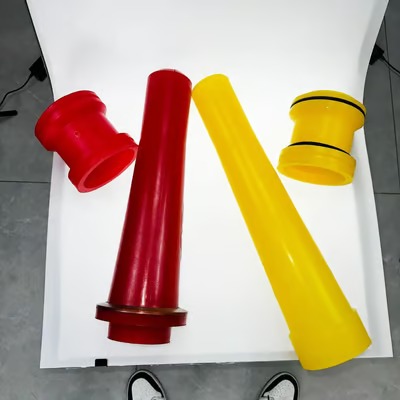Introduction
Polyurethane hydrocyclones are widely used in various industrial applications for their exceptional efficiency in separating solid particles from liquids. With their robust construction and exceptional performance, these hydrocyclones have become an essential tool in industries such as mining, oil and gas, chemical processing, and wastewater treatment. This article delves into the key aspects of polyurethane hydrocyclones, their benefits, and their applications across industries.
Understanding Polyurethane Hydrocyclones
Polyurethane hydrocyclones are devices used to separate solids from liquids or to classify liquids of different densities. They are constructed using high-quality polyurethane material, which provides excellent resistance to abrasion, corrosion, and impact. The design of a polyurethane hydrocyclone involves a cylindrical housing with an inlet at the top, through which the mixture of liquid and solid particles enters. The mixture enters the hydrocyclone tangentially, creating a swirling motion that separates the particles based on their size, density, and shape. The separated particles then exit through the apex at the bottom, while the clean liquid flows out through the overflow pipe.
The Advantages of Polyurethane Hydrocyclones
Polyurethane hydrocyclones offer several advantages over other separation techniques, making them an ideal choice for industrial applications. Some key advantages include:
- High Separation Efficiency: Polyurethane hydrocyclones can achieve high separation efficiencies, even for fine particles, due to their unique design and swirling motion.
- Excellent Wear Resistance: The use of polyurethane material ensures exceptional wear resistance, allowing the hydrocyclones to withstand abrasive particles and maintain their performance for extended periods.
- Chemical Resistance: Polyurethane hydrocyclones exhibit excellent resistance to a wide range of chemicals, making them suitable for diverse industrial environments.
- Easy Maintenance: These hydrocyclones are easy to clean and maintain, reducing downtime and ensuring continuous operation.
Applications of Polyurethane Hydrocyclones
Polyurethane hydrocyclones find applications in various industries where the separation of solids from liquids is crucial. Some notable applications include:
Mining Industry
In the mining industry, polyurethane hydrocyclones are used for mineral classification, dewatering, and tailings management. They help separate valuable minerals from ore slurry, ensuring efficient extraction processes and reducing the environmental impact of mining operations.
Oil and Gas Industry
Polyurethane hydrocyclones play a vital role in the oil and gas industry, where they are used for sand removal, produced water treatment, and oil-water separation. Their robust construction and high separation efficiency make them essential for maintaining the quality of oil and gas production.
Chemical Processing
In chemical processing plants, polyurethane hydrocyclones are utilized for various purposes, including solid-liquid separation, clarification of process liquids, and purification of chemical solutions. These hydrocyclones ensure the efficient removal of impurities, enhancing the overall quality of chemical products.
Wastewater Treatment
Polyurethane hydrocyclones are instrumental in wastewater treatment facilities, where they assist in the separation of solids from wastewater. By effectively separating suspended solids, these hydrocyclones contribute to the purification of water before it is discharged into the environment.
Other Industrial Applications
Polyurethane hydrocyclones find applications in a wide range of industries, including food processing, pharmaceuticals, and pulp and paper. They are used for processes such as solid-liquid separation, particle size classification, and liquid clarification.
Conclusion
Polyurethane hydrocyclones have revolutionized the way industries separate solids from liquids. With their exceptional efficiency, robust construction, and wide range of applications, these hydrocyclones have become an indispensable tool in various industrial processes. Whether in mining, oil and gas, chemical processing, or wastewater treatment, polyurethane hydrocyclones provide reliable and efficient separation, enhancing productivity and minimizing environmental impact.

